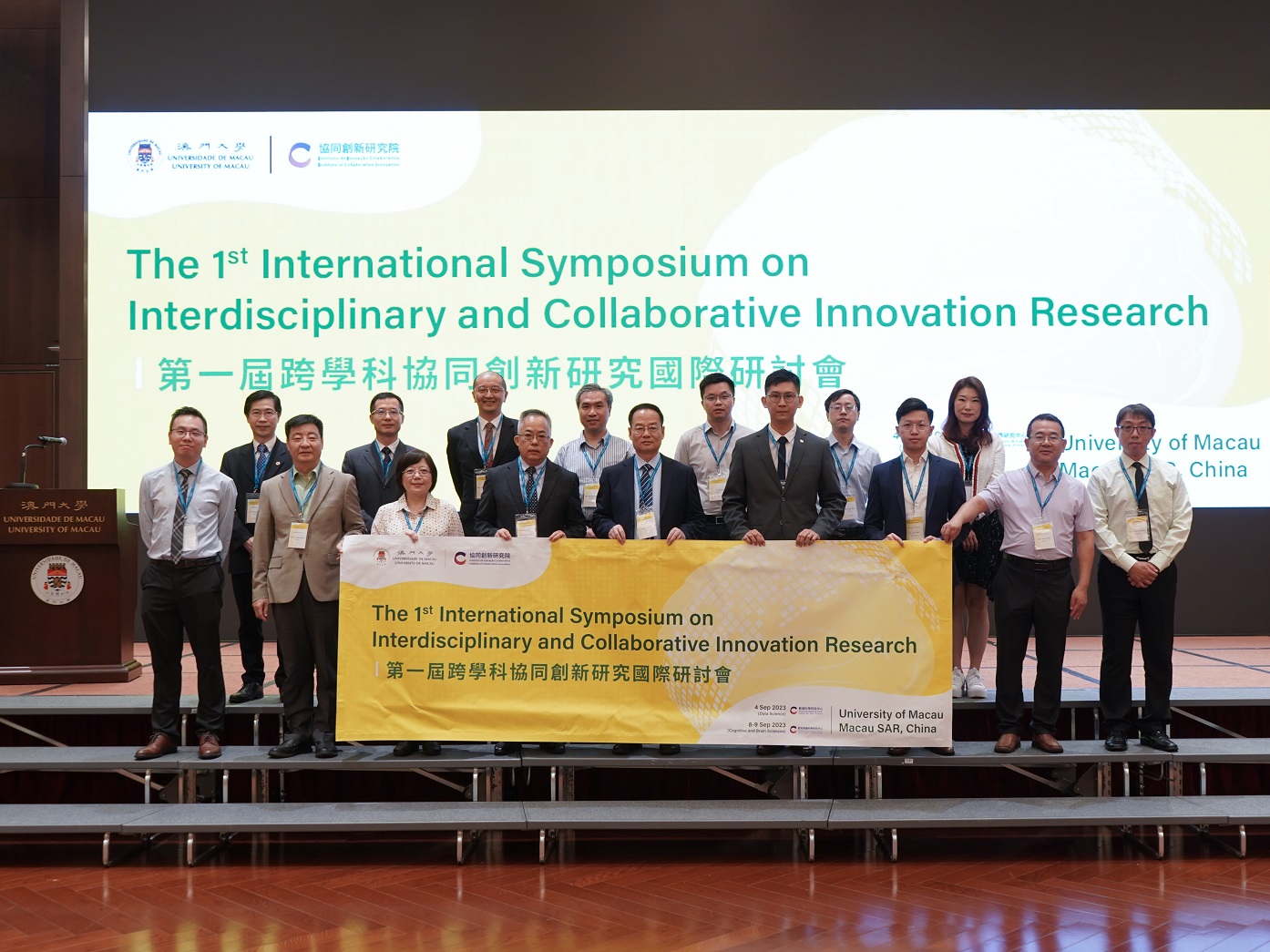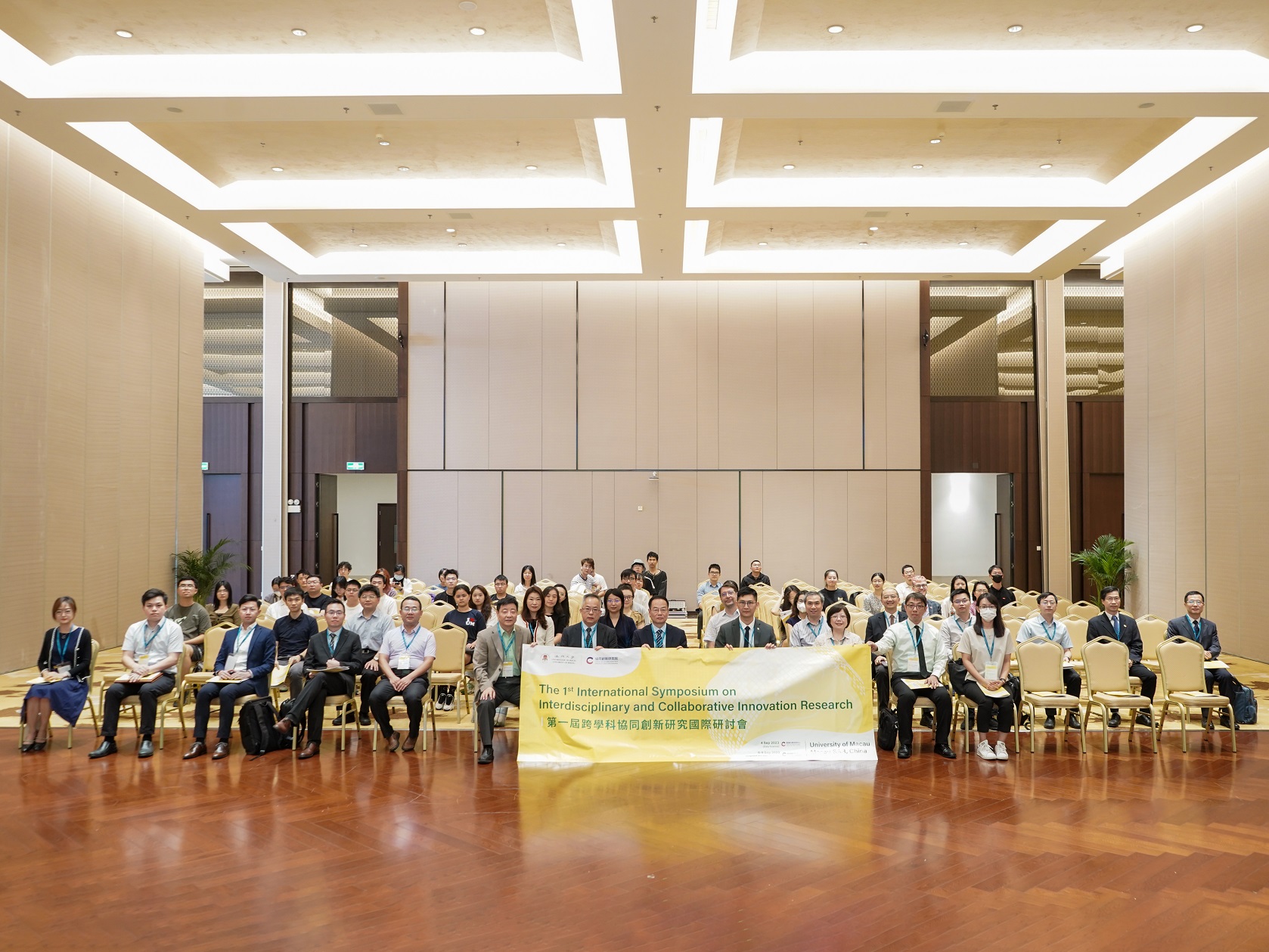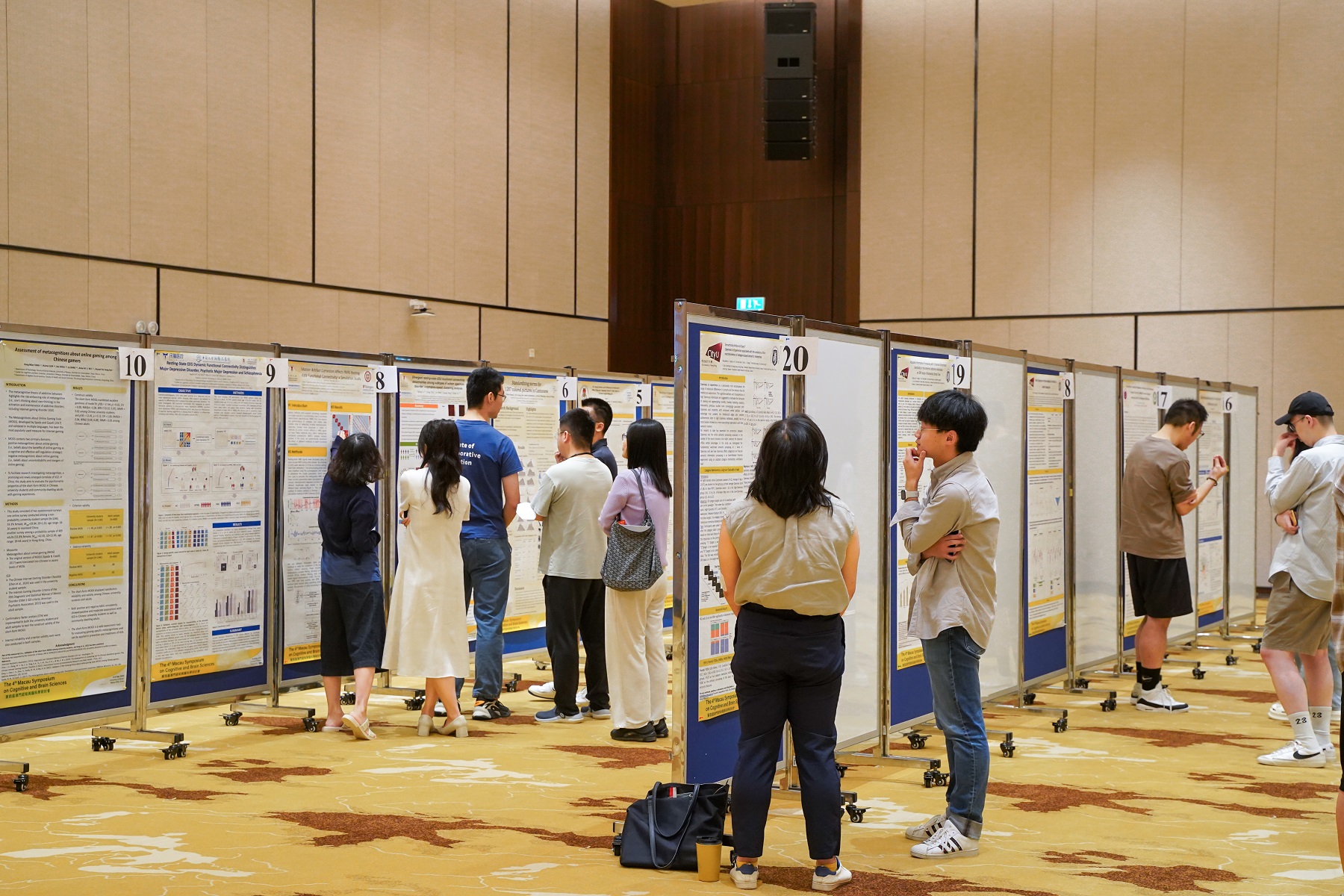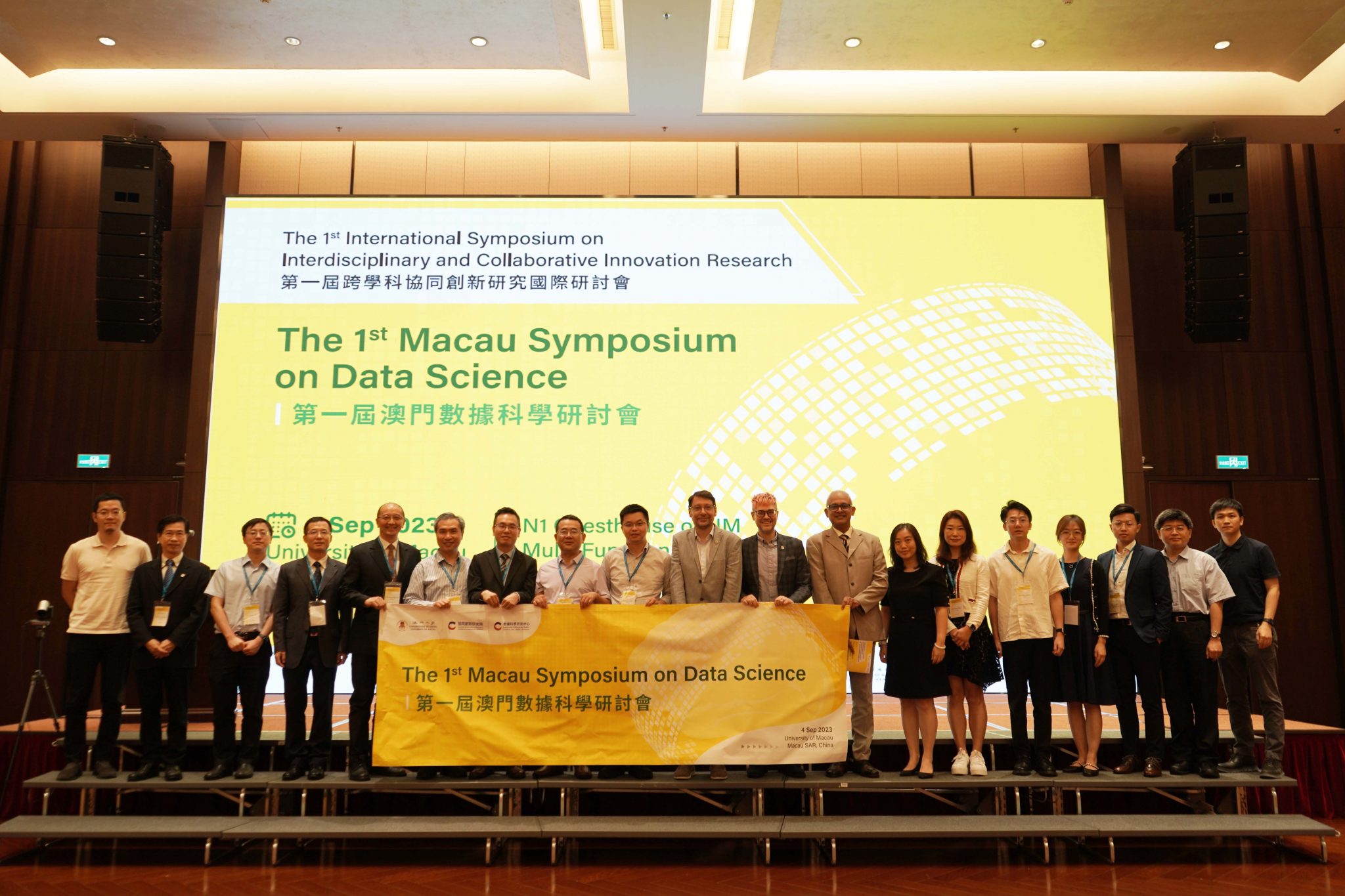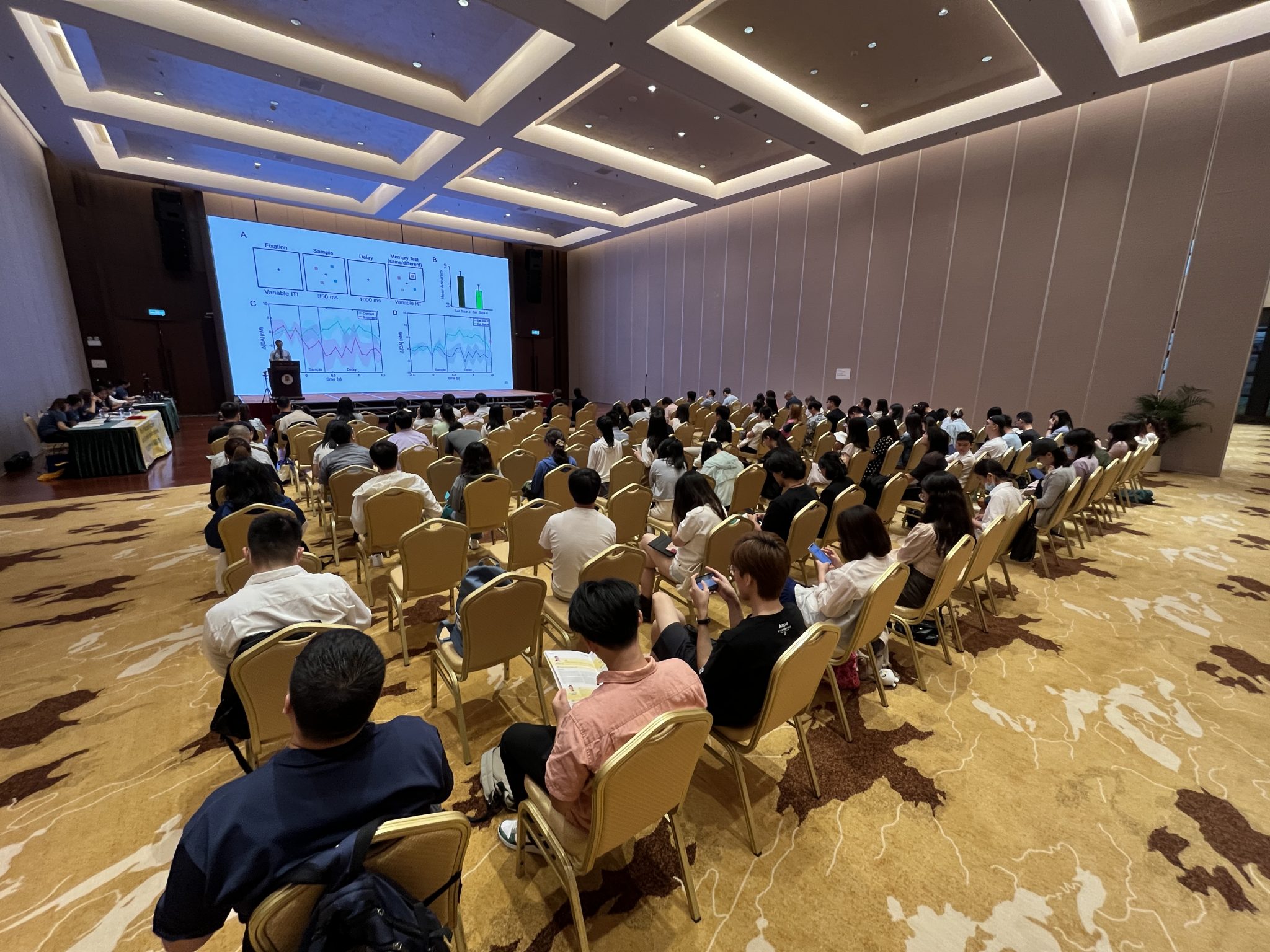The 1st International Symposium on Interdisciplinary and Collaborative Innovation Research was successfully held at the University of Macau (UM). Consisting of two sub sessions: The 1st Macau Symposium on Data Science on 4th September, and The 4th Macau Symposium on Cognitive and Brain Sciences on 8th and 9th September, the symposium offers keynote presentations, invited guest talks and young researcher session, aiming to promote interdisciplinary collaboration and facilitate academic exchange. A total of 37 presentations were delivered by renowned experts and scholars from diverse backgrounds sharing their latest research findings in data science and neuroscience, including 8 keynote presentations and 29 guest talks. The three-day symposium has more than 300 people participated.
This symposium was sponsored by the University of Macau Development Foundation and co-organized by the Institute of Collaborative Innovation (ICI) and its sub-centres, Centre for Data Science and Centre for Cognitive and Brain Sciences. During the opening ceremony, Prof. Wei GE, Vice Rector (Research) of UM, delivered a speech introducing the mission and key role of the Institute of Collaborative Innovation, and expressed expectations for the success of this symposium.
A list of honorable guests attended the opening ceremony, including Mr. Simon CHE Wai Meng, Chief of the Project Transformation and Support Department of The Science and Technology Development Fund (FDCT), Mr. CHAN Chou Weng, Acting Head of Technology Department of The Economic and Technological Development Bureau (DSEDT), Prof. Florence VAN Iat Kio, President of Kiang Wu Nursing College of Macau, Prof. Jason CHUANG Yao Chen, Associate Professor of Kiang Wu Nursing College of Macau, Mr. Jack YIM, Huawei Cloud Solutions, Prof. Chengzhong XU, Interim Director of Institute of Collaborative Innovation, Prof. Zhen Yuan, Associate Director of Institute of Collaborative Innovation and Head of Centre for Cognitive and Brain Sciences and Prof. Ryan U, Head of Centre for Data Science.
The 1st Macau Symposium on Data Science (sub session 1) hosted 2 keynote speeches. Prof. Reynold CHENG from the University of Hong Kong introduced how to use data science technology to help the elderly and home care services by the Social Technology and Research Laboratory of HKU (STAR LAB). Prof. Jianliang XU of Hong Kong Baptist University discussed the challenges and difficulties encountered in large-scale geospatial analysis technology and shared the latest research results.
The 4th Macau Symposium on Cognitive and Brain Sciences (sub session 2) hosted 6 keynote speeches and 20 invited guest talks sharing on topics such as cognitive neuroscience, brain diseases, neuroimaging, and brain intervention techniques. Keynote speaker Prof. Luonan CHEN of the Chinese Academy of Sciences presented a new concept “dynamics-based data science” in AI applications of biology and medicine for studying dynamical processes and disease progressions; Prof. Qiyong GONG, Professor of West China Hospital of Sichuan University shared recent findings on psychoradiology in conjunction with the recent technical development, and their implications for clinical care of the psychiatric patients; Prof. Gene BREWER of the Arizona State University gave a talked titled “Novel Methods for Detecting Neurotransmitter Concentrations with Sub-Second Temporal Resolution in Humans”; Prof. Tatia LEE, Chair Professor of the University of Hong Kong shared her findings on the topic “Is the pons a significant neural correlate of the human affective processing system?”; Prof. Miguel CASTELO-BRANCO discussed on the mechanisms of disease and of therapeutic interventions in clinical neuroscience; and Prof. Lingjie Kong from Tsinghua University introduced his research on all-optical physiology for interrogation of neural circuits in vivo.
The symposium also included a young researcher session to showcase their research outputs, a total of 10 oral presentations were given delivered and 30 posters were displayed. As a recognition to the outstanding young scholars, the committee selected three awardees each for the Best Oral Presentation Award, Best Poster Award and Travel Award.
The Institute of Collaborative Innovation is dedicated to promote interdisciplinary research among the higher education institutions in the Greater Bay Area and internationally, cultivating innovative talents, fostering an environment that is conducive to innovative thinking, innovative capabilities and innovative industries, and promoting cooperation among industry, academic and research. This symposium attempted to discuss the latest trends and challenges in data science, cognitive neuroscience and brain science, with the purpose of promoting academic exchange among scholars.
